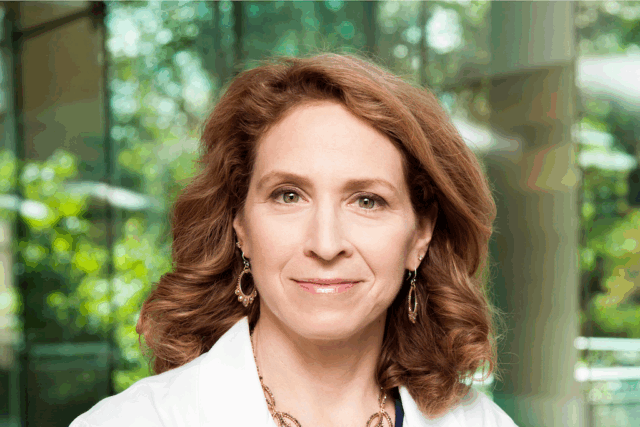
By Jenna Lebovits
Chief health officer: It’s a position that many organizations, companies and even countries appoint. And every family has one, too. In the home, it’s a quieter, unofficial title: the person who makes sure everyone’s medical appointments are scheduled, prescriptions filled, insurance claims filed and the health of the entire household maintained.
More often than not, it’s a woman’s role. Studies show that nearly 80 percent of a family’s medical duties are handled by women, and being the designated CHO is no small feat and can take a toll. Long-term caregiving is known to impact mental and physical health, increase anxiety and depression, and even lead individuals to neglect their own well-being. Today, we call it caregiver burnout or compassion fatigue—deep exhaustion caused by the prolonged stress of tending to others.

This October, as Breast Cancer Awareness Month returns, it’s a reminder to prioritize your own annual screenings, prevention and holistic health. It’s also a time to check in, evaluate your knowledge and strengthen your education. After skin cancer, breast cancer is the most common type among women, with about 1 in 8 affected in her lifetime. Education, prevention and early detection remain key. “Most breast cancers are not inherited, but occur because of how we lead our lives today,” says breast oncologist and author (Living Well Beyond Breast Cancer) Dr. Marisa C. Weiss. “The things that help reduce the risk are the same things that are associated with longevity.” Daily movement, a balanced diet, and proper sleep and stress management are key in lowering risk in nonhereditary cases.
Weiss, founder and chief medical officer of the nonprofit breastcancer.org, built a platform that provides 24-7 education, support and community for 12 million breast cancer patients, survivors and caregivers annually. Next year, she celebrates an exciting milestone: 25 years and over 250 million people served.
When she launched the organization more than two decades ago, her mission was clear. “I wanted to make sure that no one had to face breast cancer alone or be uninformed,” says Weiss. “Everything we offer is at no cost—from medically reviewed expertise to virtual support groups and community forums that connect people who truly understand what you’re going through.”
When a personal diagnosis strikes, the family CHO is at even greater risk for burnout. But with proactive strategies, balance is possible. Weiss recommends families begin by having conversations about sharing the load. “It’s important to ask for help and delegate responsibilities,” says Weiss, who suggests redistributing household chores, especially ones that don’t feel personally meaningful. “When I went through breast cancer,” says Weiss, “I put a printed list on the refrigerator, a schedule of who takes out the trash, unloads the dishwasher, cooks dinner and goes grocery shopping.”
She also extols the importance of community and leaning on friends, siblings, partners and neighbors to help lighten the load. “When you know that you’re not alone, and that you’re sharing the burden, the burden becomes much lighter,” says Weiss.
Help Lower Your Risk:
Move daily for at least 10 minutes (aim for at least 150 minutes a week)Prioritize annual screenings: mammogram, ultrasound or MRI.
Follow a Mediterranean-style diet.
Limit alcohol intake, skip smoking.
Sleep well, manage stress.
Ask for help and share the CHO load.
For more resources, visit breastcancer.org.





